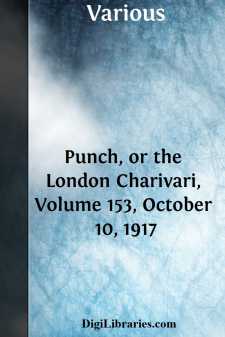Categories
- Antiques & Collectibles 13
- Architecture 36
- Art 48
- Bibles 22
- Biography & Autobiography 813
- Body, Mind & Spirit 142
- Business & Economics 28
- Children's Books 17
- Children's Fiction 14
- Computers 4
- Cooking 94
- Crafts & Hobbies 4
- Drama 346
- Education 46
- Family & Relationships 57
- Fiction 11829
- Games 19
- Gardening 17
- Health & Fitness 34
- History 1377
- House & Home 1
- Humor 147
- Juvenile Fiction 1873
- Juvenile Nonfiction 202
- Language Arts & Disciplines 88
- Law 16
- Literary Collections 686
- Literary Criticism 179
- Mathematics 13
- Medical 41
- Music 40
- Nature 179
- Non-Classifiable 1768
- Performing Arts 7
- Periodicals 1453
- Philosophy 64
- Photography 2
- Poetry 896
- Political Science 203
- Psychology 42
- Reference 154
- Religion 513
- Science 126
- Self-Help 84
- Social Science 81
- Sports & Recreation 34
- Study Aids 3
- Technology & Engineering 59
- Transportation 23
- Travel 463
- True Crime 29
Our website is made possible by displaying online advertisements to our visitors.
Please consider supporting us by disabling your ad blocker.
Punch, or the London Charivari, Volume 153, October 10, 1917
by: Various
Categories:
Description:
Excerpt
FORCE OF HABIT.
The fact that George had been eighteen months in Gallipoli, Egypt and France, without leave home till now, should have warned me. As it was I merely found myself gasping "Shell-shock!"
We were walking in a crowded thoroughfare, and George was giving all the officers he met the cheeriest of "Good mornings." It took people in two ways. Those on leave, blushing to think they had so far forgotten their B.E.F. habits as to pass a brother-officer without some recognition, replied hastily by murmuring the conventional "How are you?" into some innocent civilian's face some yards behind us. Mere stay-at-homes, on the other hand, surprised into believing that they ought to know him, stopped and became quite effusive. As far as I can remember George accepted three invitations to dinner from total strangers rather than explain, and I was included in one of them.
We were for the play that night and I foresaw difficulties at the public telephone, and George's first remark of "Hullo, hullo, is that Signals? Put me through to His Majesty's," confirmed my apprehensions.
Half-an-hour of this kind of thing produced in me a strong desire for peace and seclusion. A taxi would have solved my difficulty (had I been able to solve the taxi difficulty first), but George himself anticipated me by suddenly holding up a private car and asking for a lift. I could have smiled at this further lapse had not the owner, a detestable club acquaintance whom I had been trying to keep at a distance for years, been the driver. He was delighted, and I was borne away conscious of twenty years' work undone by a single stroke.
Peace and seclusion at the club afforded no relief however. George was really very trying at tea. He accused the bread because the crust had not a hairy exterior (generally accumulated by its conveyance in a blanket or sandbag). He ridiculed the sugar ration—I don't believe he has ever been short in his life; and the resources of the place were unequal to the task of providing tea of sufficient strength to admit of the spoon being stood upright in it—a consistency to which, he said, he had grown accustomed. When I left him he was bullying the hall-porter of the club for a soft-nosed pencil; ink, he explained, being an abomination.
I also saw him pay 2½d. for a Daily Mail.
I got a letter from George just before he went back. He patronized me delightfully—seemed more than half a Colonial already. He said he was glad to have seen us all again, but was equally glad to be getting back, as he was beginning to feel a little homesick. He hinted we were dull dogs and treated people we didn't know like strangers. Didn't we ever cheer up? He became very unjust, I thought, when he said that France was at war, but that we had only an Army and Navy.
Incidentally I had to pay twopence on the letter, the postman insisting that George's neat signature in the bottom left-hand corner of the envelope was an insufficient substitute for a penny stamp.
"The raiders came in three suctions."—Evening News....












